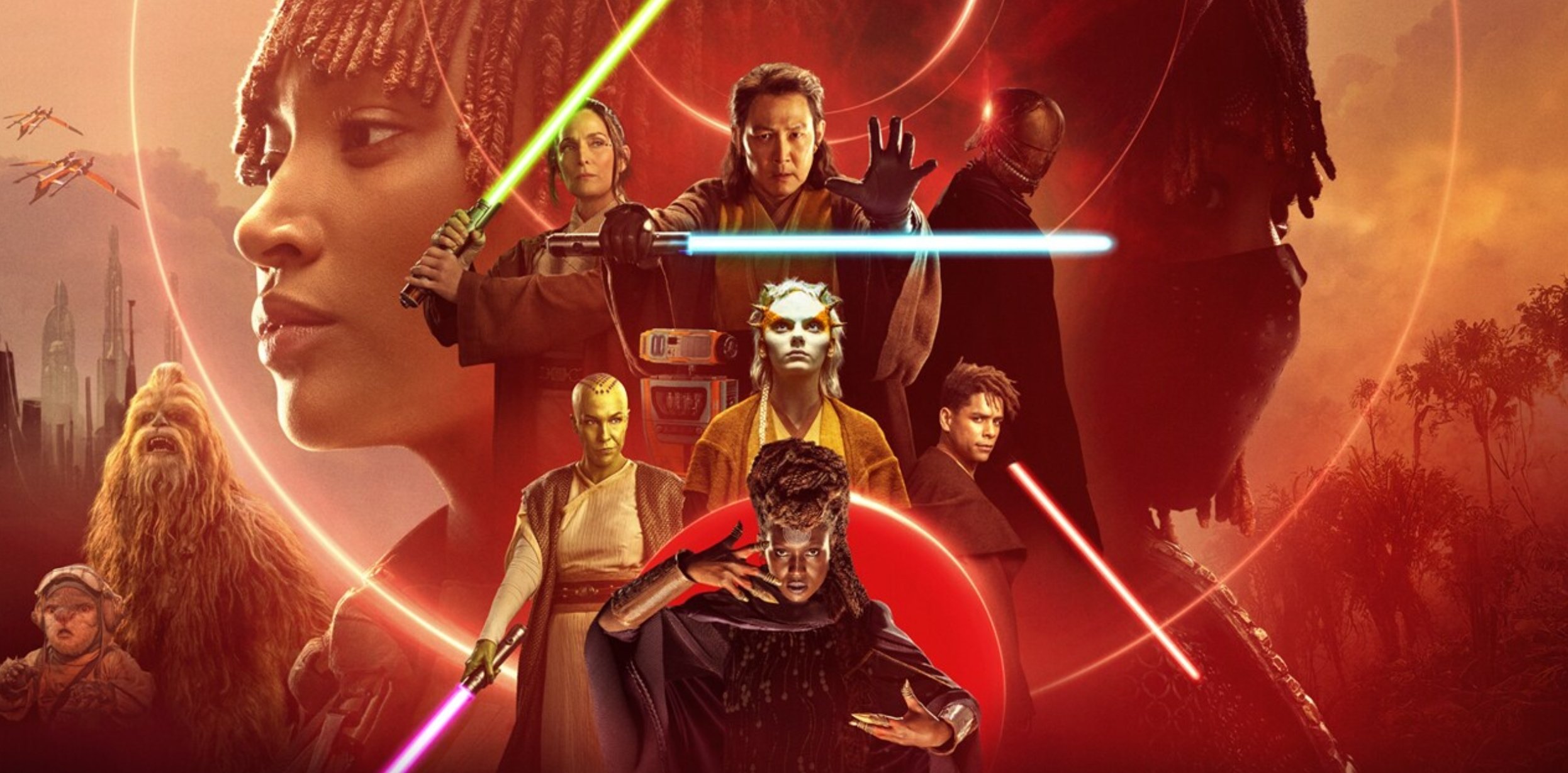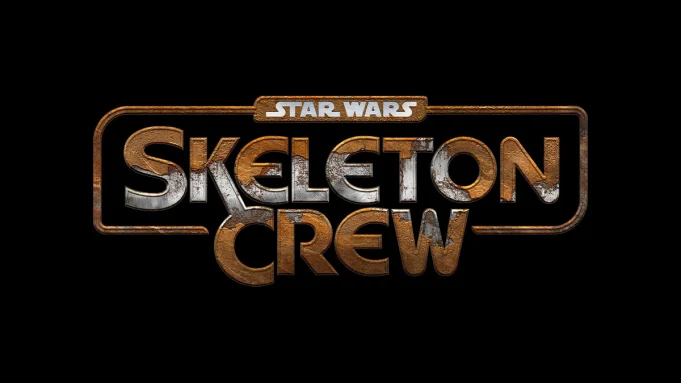‘GLOW’ Season 2 Review
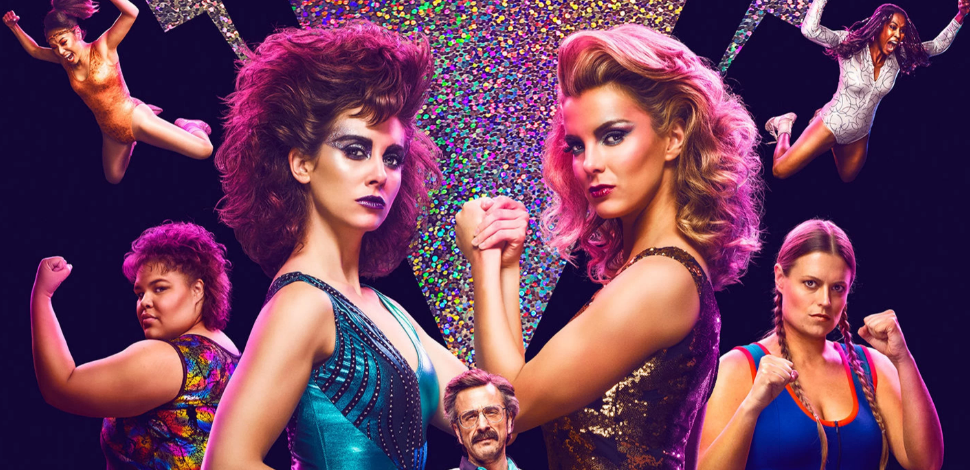
The second season of Netflix’s lady wrestling character-driven comedy, Glow, offers hit after hit of jokes and drama before finishing with a K.O. of a finale. Some minor spoilers below!
I remembered liking the first season of GLOW. I remembered liking it a lot. But it wasn’t until Netflix’s recap at the beginning of this new season (a feature that I truly appreciate) that I remembered why I liked it.
This show might look like it somehow simultaneously panders to 1980’s nostalgia, the male gaze, and feminist values. And maybe it does. But more than that, GLOW has a ton of heart. Just ask this almost twenty-seven year old male reviewer, who must’ve happy cried at least once per episode on average.
On the surface, GLOW‘s second season doesn’t do a whole lot of new stuff. It’s basically the stereotypical story of the underdog group trying to get money/popularity to continue doing what they love best. There are some love triangles, friendships and rivalries, and groupies who dress up like a wolf lady. Well, maybe that last part isn’t all that common.
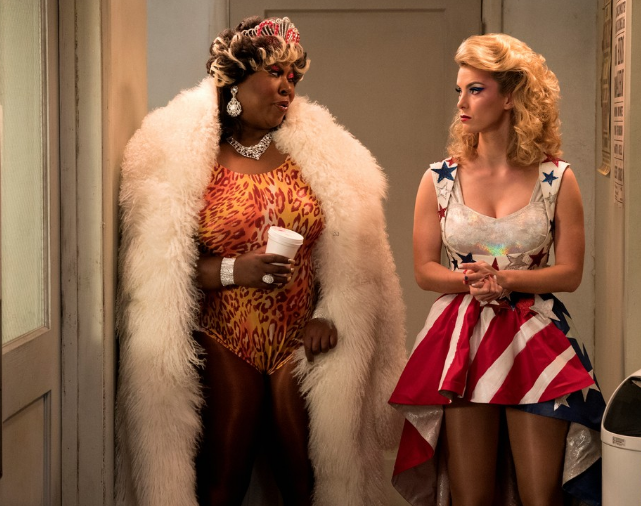
But what GLOW does so well is to portray its characters as interesting and fleshed out individuals without relying on giving everybody the spotlight. To explain what I mean by that, I’ll ask you to consider something like Orange is the New Black. You’ve got Piper as the sort of “main character” of the show, and a very strong ensemble cast that has basically taken over as a collective protagonist at this point. And that’s totally fine! But sometimes OITNB zooms just a little too far in on an auxiliary character, and while sometimes the results are actually really fascinating, you more often get left with the feeling that you wasted fifty minutes of your life watching an inconsequential character have inconsequential flashbacks all because Jenji Kohen wanted everybody to get their own episode.
This season of GLOW, in my opinion, doesn’t have that problem. Sure, there are a few episodes that feature one of the characters a little more heavily, but they’re more the exception than the rule- and given that, these examinations tend to be more enjoyable and feel more weighty. What really impressed me, though, is the ways in which the girls evolve in the background as Sam, Ruth, and Debbie run the show. For example, there’s a sort of “Will They/Won’t They” between two characters throughout this season, but it was portrayed entirely non-verbally through longing gazes. In fact, I’m not sure I can even think of a time that these two characters actually spoke to each other, but I found myself rooting for them to get together nonetheless. In fact, the documentary GLOW: The Story of the Gorgeous Ladies of Wrestling goes a little deeper into the relationship between these characters real-life counterparts, and I was a totally emotional wreck while watching it.
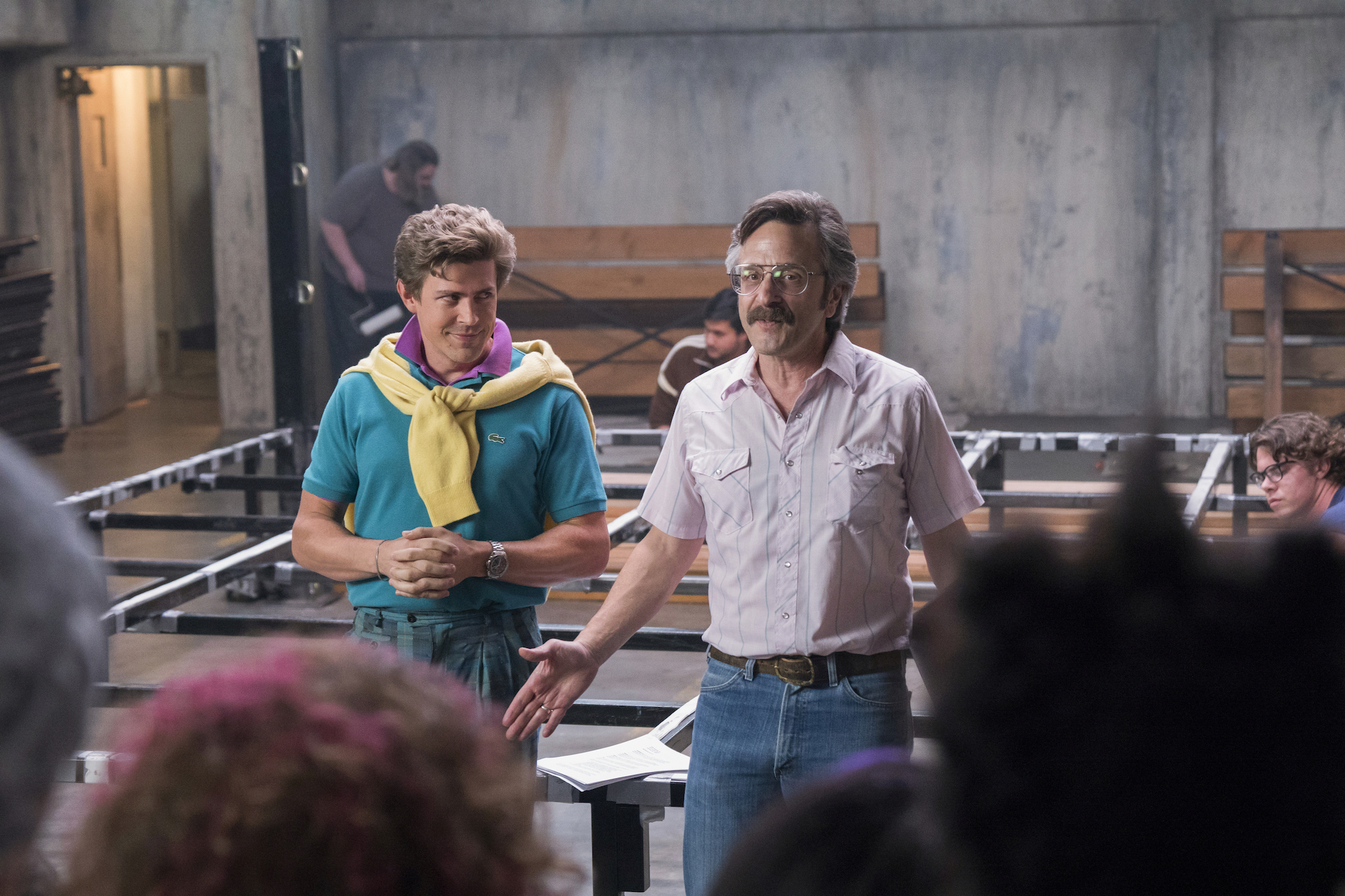
The decision to tell a character-driven story without segmenting up the season into character-specific episodes really paid off with the pacing as well. The cuts between each episode felt like a natural and logical split, making them feel like cohesive experiences rather than just a string of binge-able content (though it’s still quite easy to binge). Each character’s journey moves a little bit forward each time, as does the overall story of GLOW itself- and that makes a lot of sense, given how each of the women’s fates are so closely tied given their connection to the wrestling company.
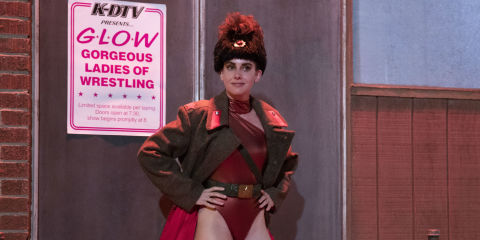
The actual real-life iteration of the Gorgeous Ladies of Wrestling as described in the documentary about it had two main core audiences- frat boys (which I guess makes sense) and little girls who saw the wrestlers as role models. This show absolutely strives for a similar sense of empowerment, and while little kids probably shouldn’t watch it, it’s still kinda cool that people who grew up with the actual original wrestling show now have this to enjoy as well.
I’d also like to note that while the first season did introduce some tongue-in-cheek jokes about the sort of problematic way that wrestling has embraced racial and sexist stereotypes at times, this second season did show some of the toll that these minstrel-like portrayals can take on individuals. There are still some elements of the show that some might find problematic, and I’m hardly the person to decide what is or is not acceptable in media, but I do think that they’re meant to be seen more as an obviously wrong and negative thing- for instance, I believe we’re meant to sympathize with one of the women when her request to change her rather racist wrestling persona is denied.
Overall, the second season of GLOW was actually a really enjoyable experience, and I actually hope that it serves as the new gold standard for when it comes to how streaming services can handle original character-driven content. A lot of the things that I’ve binged this year felt almost like a chore. This definitely wasn’t one of them.



